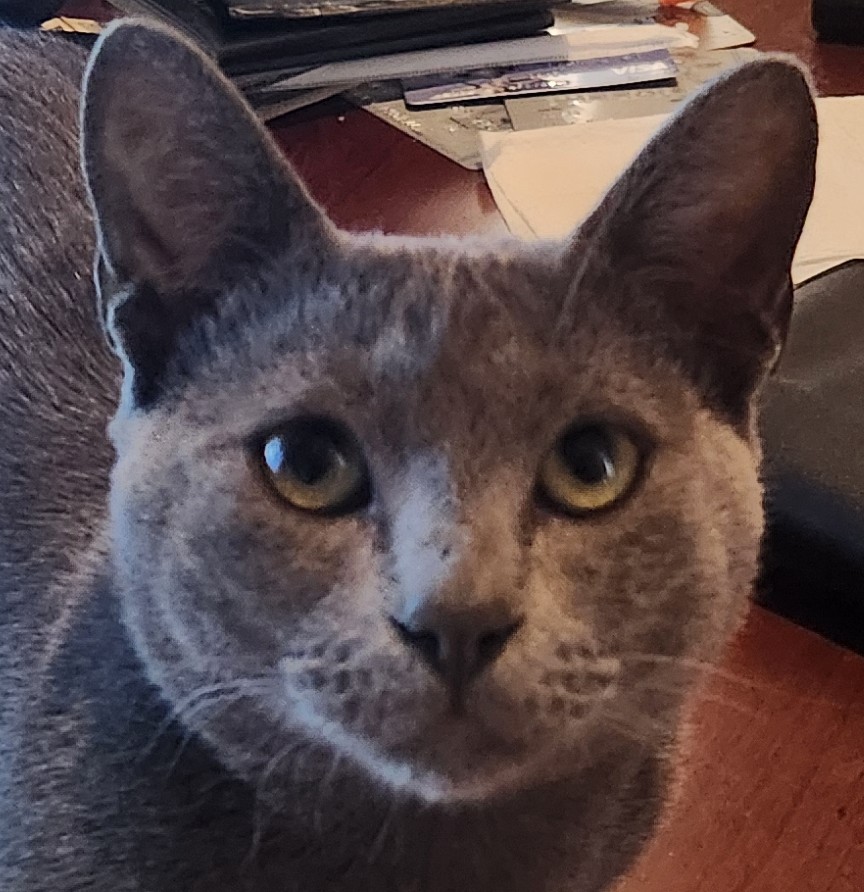Albeit, caveat, awry, segue, haphazard, and facsimile are all pronounced weirdly and incorrectly for those who learned a lot of English by reading.
I can’t say for certain, but it’s probably one of these.
Flaccid.
Kumquat
pork
From French porc from Latin.
Same as beef from boeuf.
pwn
When I run
grep -v "[aeiouy]" /usr/share/dict/words|lesson my system, it’s the only non-abbreviation word that comes up that doesn’t have a “a”, “e”, “i”, “o”, “u”, or “y” and is a real word – like, Mirriam-Webster lists it:https://www.merriam-webster.com/dictionary/pwn
slang
: to dominate and defeat (someone or something) : OWN sense 1b, ROUT entry 2 sense 1a
Online gamers use “pwn” to describe annihilating an opponent, or owning them. The word came from misspelling “own” by gamers typing quickly and striking the letter P instead of the neighboring letter O.
— Christopher RhoadsNo government, including Britain’s, should have the power to pwn the Internet, and destroy it in the process.
— Amie StepanovichWhy pwn the noobs from your couch when you could do it in front of an audience at New York’s first-ever Fortnite In The Heights Tournament?
—Eva KisThen, a bunch of federal attorneys general got pwned in the Ninth Circuit Court of Appeals regarding their prosecution of medical marijuana businesses, which is a pretty big deal.
—Vince SilwoskiWhat about cwm?
It’s Welsh, but in the English dictionary for some reason.
How is that pronounced?
Cwoom
That’s in the dictionary now? I was there. 4000 years ago. When angry counterstrike players typed too fast and didn’t correct their typos.
For people who pronounce it like p+own are just adding the vowel in without it being written.
I’ve also heard it said more like ‘poon’ which I guess is more true to how w would work as a vowel (uu).
Indubitably
My friend used to always say this to mean “definitely”. He was wrong, but it sounded sophisticated.
Omit omitted omitting omits – omission –
The * did my t go?
I feel like we will change a lot for digital reasons, especially in coming centuries.
lemmatization - in linguistics is the process of grouping together inflected forms of a word so they can be analyzed as a single item, identified by the word’s lemma, or dictionary form; (eg. walk [lemma], walks, walked, walking)
Things like inflected forms and parts of speech that can not be coded easily really have no use in the future. Things like how a sentence can be “I am here.” but when I must change more than one word to say “He is here.” The am/is change is nonsense of no use. It is like a deep inner conflict with no solution; a prejudice or bias.
Conjugation, inflection, and declension can give more flexibility to word order or otherwise remove words. Whether or not that’s /useful/ is more subjective.
I wonder if -tion becoming prounounced like ‘shun’ has anything to do with how it ended up that way.
Dyslexia - it’s hard to spell even if you’re not dyslexic.
- Funny weird: gobbledygook
- Longest weird: antidisestablishmentarianism
- Shortest weird: A
- Literally weird: weird
- Dangerously weird: Conservative
- Unexpectedly weird: vanilla
- Properly weird: FNORD
Kerfluffle
Kovfefe?
Brouhaha is its twin brother!
Only has one “l”
Isthmus. I don’t claim to know if it’s the weirdest, but it’s gotta be one of the most difficult to pronounce!
strengths
it breaks so many linguistic rules yet feels just fine to say
What linguistic rules does it break? 🤨
I assume it’s about thr apparently enormous consonant cluster at the ends, which is very rare in English. We have consonant clusters, yes, but not usually with five at once. Although it’s actually only three, since “ng” and “th” are one consonant sound each, we just write them with two letters
it’s very rare in any language, complexity at the start is not uncommon, but complexity at the end is, also the ordering of the consonant types and the fact there’s two fricatives in a row at the end, it’s not just a word that not only has no place existing, but also one that should be so unstable it’d change to something less complex in decades at most, yet it’s stayed pretty consistent for a while
It’s also actually 4 consonants as there’s an unwritten k in many accents, or ng is pronounced as ŋg in others, so stɹɛŋ(k|g|∅)θs
I’d like to hear someone pronounce it as [stɹɛŋgθs] without choking.
It’s pretty common in Northern English and I think maybe also Australian:
https://www.journal-labphon.org/article/id/6239/
The fact it’s not only possible but regularly used when the expectation is that it’d be hard to do without choking is why it’s such a weird word
the fact there’s two fricatives in a row at the end
Isn’t that the case for basically any plural noun with a singular form ending in a fricative in English? Paths, months, depths, loaves, dwarves etc. There are also verbs ending with fricatives that do it when in the right tense, like moves, breathes, leaves, or triumphs
Orange morning rhymes with orange
Fun fact: Orange was originally “norange” misspelled. Comes from the same origin as naranja in Spanish.
British English - lieutenant is pronounced “Lef-tennant”









